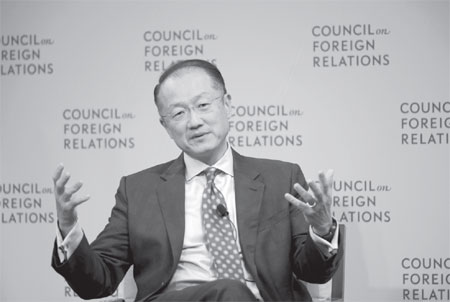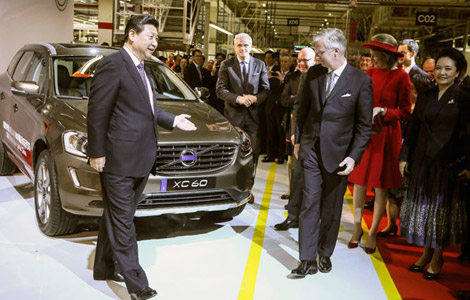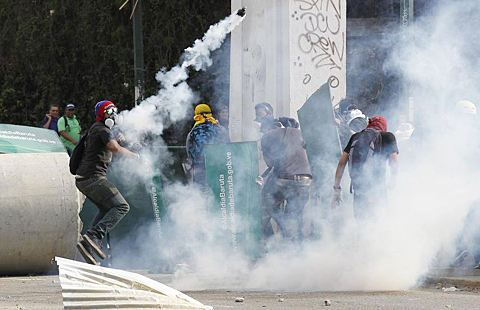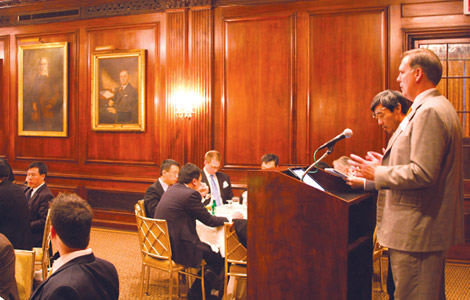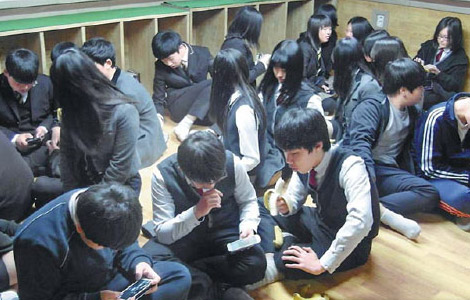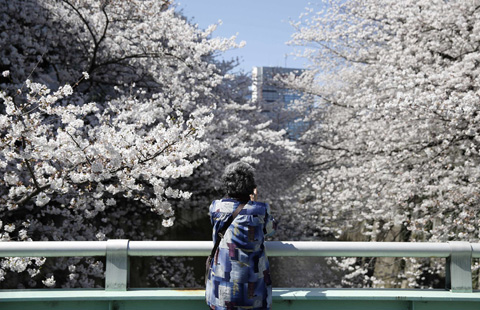World Bank to bolster fight on poverty, inequality
Updated: 2014-04-02 10:53
By Chen Weihua in Washington (China Daily USA)
|
||||||||
World Bank President Jim Yong Kim announced measures and called for bold steps to address the poverty and inequality facing the world today.
Speaking at the Council on Foreign Relations in Washington on Tuesday, Kim announced a $100 billion increase in the bank's lending arm for middle-income countries over the next decade, new innovations in financial management and a boost in the institution's ability to provide private sector support.
"We now have the capacity to nearly double our annual lending to middle-income countries from $15 billion to $26 to $28 billion a year. This means that the World Bank's lending capacity will increase by $100 billion to roughly $300 billion over the next 10 years," said Kim, ahead of next week's spring meetings of the World Bank and the International Monetary Fund.
Kim reiterated the bank's determination to achieve its goals of ending extreme poverty in the world by 2030 and boosting shared prosperity for the bottom 40 percent in developing countries.
He said the World Bank Group's annual commitment, which is around $45 to $50 billion today, is expected to grow to more than $70 billion in the coming years. "This increased financial firepower represents unprecedented growth for the World Bank Group," he said.
Kim said for a very long time, the rich have known to some extent how the poor around the world live. "What's new in today's world is that the best-kept secret from the poor, namely, how the rich live, is now out," he said, citing the village television, Internet and hand-held instruments.
The former president of Dartmouth College believes this has made all the difference.
"The question that nearly everyone who lives in the developing world is asking themselves is, 'How can they and their children have the economic opportunity that so many others in the world enjoy?'" Kim said.
About two-thirds of the world's extreme poor are now concentrated in five countries, namely India, China, Nigeria, Bangladesh and Democratic Republic of Congo.
In the past three decades, China has lifted hundreds of millions of people out of poverty, but it has also evolved from an egalitarian society known as "big rice pot" system to one with the Gini index -widely used to measure inequality - hitting 0.473 in 2013, according to China's National Bureau of Statistics. The number is higher compared with most countries in the world. A Gini index of 0 represents perfect equality, while an index of 100 implies perfect inequality.
Kim, who is 21 months into his tenure, said the World Bank will be bold in coming years.
He cited the example of China, where the World Bank, along with the State Council's Research Development Center, launched its report last week on the future of China's cities.
The report, which included the work of more than 100 World Bank Group staff, has already spurred China to make policy decisions that address critical development and urbanization challenges, including green growth, pollution, and land rights for farmers, according to Kim.
Kim, a physician and anthropologist by training, believes the report will help China shift its focus from the quantity of growth to the quality of growth in order to improve the lives of its citizens. "We hope these lessons from China will benefit cities around the world," Kim said.
Speaking at the International Conference on Urban China in Beijing on March 25, World Bank Managing Director and Chief Operating Officer Sri Mulyani Indrawati praised China's urbanization which supports its impressive growth and rapid economic transformation. She said China avoided some of the common ills of urbanization, notably poverty, unemployment and slums.
"But despite the success, strains are starting to show," she said.
China's growth has relied too much on investment rather than productivity, too much on land conversion and land financing, which causes urban sprawl, and on occasion, ghost towns and waste. Land conversion has added to inequalities, and has fed social unrest among farmers, according to Indrawati.
She also pointed to China's barriers to migration caused by factors such as the hukou, or household register system, the smog and poor water that threatens the health of citizens and in particular their children, and the land intensive urbanization that has reduced farmland.
China needs a new path to greater urbanization that will be efficient, inclusive and sustainable, according to Indrawati.
The joint report made six recommendations which Indrawati said take into account the realities of China's political economy. They include improving land management and ownership, mobile and versatile labor force, sustainable urban finances, reforming urban planning, halting and reversing environmental degradation, improving local governance.
The World Bank believes that a more sensible urbanization program will help address the poverty and inequality problem in China.
And Indrawati said the Chinese government is already implementing many of the recommendations of the joint study.
At a recent seminar held by the Brookings-Tsinghua Center, Song Xiaowu, director of the China Economic System Reform Research Association, described China's inequality as much more than a pure economic or academic issue, but rather a social issue.
"It's no longer the "big rice pot" egalitarianism that haunts us, but the inequality that is challenging China," he said.
chenweihua@chinadailyusa.com
|
World Bank President Jim Yong Kim speaks about poverty and inequality at the Council on Foreign Relations in Washington on Tuesday. Kaveh Sardari / Council on Foreign Relations |
(China Daily USA 04/02/2014 page3)
Most Viewed
Editor's Picks

|

|

|

|

|

|
Today's Top News
Japan removes export ban on military goods
Asiana admits pilot error in fatal crash
Sina Weibo picks Nasdaq for IPO
5 dead in 8.2 quake off Chile
NY Councilman meets 'the press'
MH370 'unlikely' to hurt ties
Xi's trip builds bridge to Europe
Weibo to list on Nasdaq
US Weekly

|

|
